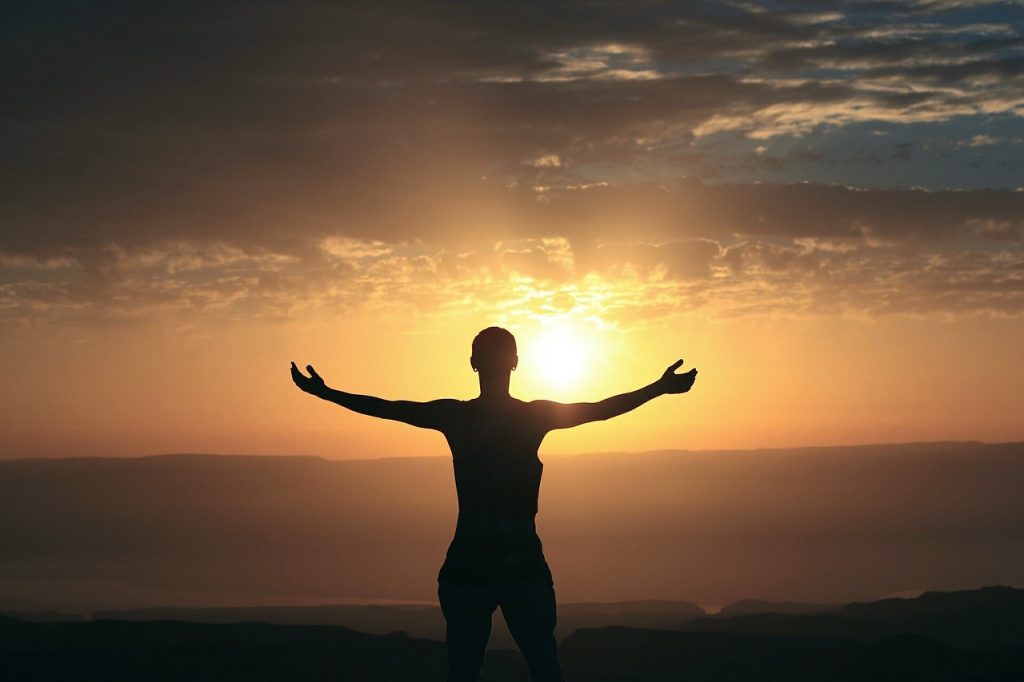
What’s the point of gratitude?
The way we use our attention dictates how we feel. Depending on what we focus on, our experiences become framed in a certain way. If we focus on what we lack, we become anxious, unhappy, and frustrated. By practicing gratitude daily, our attention moves towards more pleasant frames of thought centering around abundance.
As we become more grateful, our attention is pulled away from trivial frustrations. We realize that small problems matter very little. There are too many positives to be upset. Yes, maybe the dog knocked over a glass of water but we’re lucky to be in a position to have a dog and clean water as well. There are a multitude of things we take for granted.
It could always be worse.
Even when more serious obstacles arise, gratitude can reframe our experiences and revitalize our energy. We may have gotten laid off, but we could have become paralyzed, blind, or deaf today. Most people would consider those conditions far worse. It can seem like a stretch, imaging the worst possible scenarios, but these are still potential outcomes.
For the statistically inclined, yes, I understand they’re not likely, but we can change the scenario to something like having been born elsewhere in an earlier time, when life was much more difficult. Statistically speaking, you being alive now and having access to the internet is extremely small. You could have been born in a time when you’d be suffering from the plague right now. We could go on forever with all kinds of examples like this – the bottom line is there are always things to be grateful for.
Gratitude is a habit.
Gratitude is not a natural reflex for most of us. Due to this, we need to intentionally practice being grateful on a regular basis and build a habit of gratitude. Most often, it’s easiest to start with the big blessings and hypotheticals, then as we become more practiced we can apply gratitude to events as they happen throughout the day. Over time, we can become happier in our daily moments through gratitude.
To get the most benefit, our gratitude must be genuine. Simply writing down a list of what you ought to be grateful for won’t cut it, you have to experience the feeling as well. If you’re having trouble, think of something you use daily and imagine not having access to it ever again. Hand soap, for example. What if you could never get access to hand soap again? You could never wash up before cooking or after using the bathroom. I won’t bore you with a hundred thousand other examples, but with a little brainstorming you can come up with countless examples.
3 Ways To Start Your Gratitude Practice
Let’s talk about three ways you can actually build your daily gratitude practice. Here are a few strategies – test them out to see which one works for you. Again, creating the feeling is extremely important. For me, a journal doesn’t work as well as periodic reflections. To each their own!
-
Some people like a journal. If you’re using a journal, set out time each day to write down all the things you’re grateful for. They can either be events from the day or general items you’re thankful for.
-
Some people have a focused period at the start/end of the day. One specific way to do this is to reflect on what you’re thankful for either at the beginning or the end of the day. When you use this method it’s either the first thing you do in the morning or the last thing you do at night.
-
Some people like to be grateful as things happen. Usually this is used in conjunction with a number, so for example the strategy would be throughout the day to find 3 things you’re thankful for. This can be a little more difficult as you have to remember, but for some people this can make the experience far more meaningful.
Gratitude adds a huge dimension of perspective to our lives, allowing us to see the good in life. Since we only have a limited amount of attention, it’s far more beneficial emotionally to expend it on positives. In this way we feel more fulfilled and motivated. I recommend you start a gratitude practice today!
Exercise:
Pick a method for being more grateful and commit to it for a full week. At the end of the week, revisit your chosen method to see how it’s working for you and adjust as needed.
